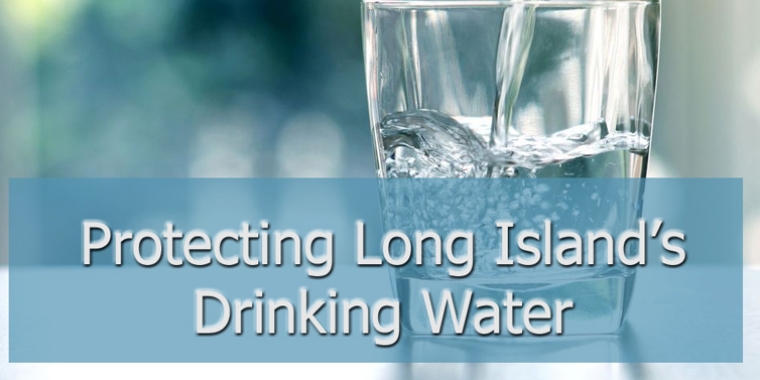
Statement From Senator Phillips Regarding State Action On Water Quality Initiatives
October 4, 2018

Last week several of my colleagues and I held a news conference calling on The Governor and state departments of Health and Environmental Conservation to take immediate steps to protect New York’s drinking water from potentially harmful chemicals.
We released a four-part action plan to hold drinking water quality council meeting, restart the stalled process required to set state minimum standards for 1,4-dioxane, PFOA, and PFOS, ensure local governments have access to the funds needed to remove drinking water contaminants, and improve public notification about emerging health threats.
I am very pleased to announce that all requests have now been acted upon.
1. Hold Drinking Water Quality Council Meetings
The Drinking Water Quality Council was created by the Senate and included as part of the 2017-18 state budget to make recommendations to the Department of Health ensuring the safety of potable water - yet no meetings have taken place in the past seven months. It has been announced that the DOH will hold its next meeting on October 17 in Albany.
2. Set New Recommended Levels for Drinking Water Safety
New York State needs to establish state standards to protect the public from emerging contaminants because the federal government has not yet done so. Despite an announcement from Governor Cuomo in February 2017 touting the importance of setting a drinking water standard for 1,4-dioxane, and outreach from the Senators and water districts urging DOH and DEC to quickly adopt state safeguards, the state has still not acted 18 months later. This week it was announced the Drinking Water Quality Council will set the enforceable drinking water standards for the emerging contaminants 1,4-dioxane, PFOA and PFOS. In order to allow for remediation funding to be approved the standard will need to be completed at the Drinking Water Quality Council’s October 17th meeting.
3. Support Infrastructure Investment to Prevent Water Contamination
As part of the 2017-18 state budget, the Senate successfully secured a historic $2.5 billion investment in funding to support clean water infrastructure. Projects that would protect water supplies from 1,4-dioxane, PFOA, and PFOS are eligible to compete for this funding. I am particularly pleased to announce, within my senatorial district, Hicksville Water District is receiving $162,330 for a pilot of a new water treatment technology called Advanced Oxidative Process, which has proven to be effective at removing 1,4-dioxane from drinking water. This is particularly significant since Hicksville Water District has the highest 1,4-dioxane contaminant levels in NYS. With the absence of any specific state standards for these contaminants, water districts may be unaware that they need to remediate and may be at a disadvantage in the application scoring process until new standards are established.
4. Sign a Senate Bill Improving Public Awareness of Dangerous Contaminants
Earlier this year, both houses of the Legislature passed a bill (S6655) to improve public awareness of harmful contaminants in the environment. It requires DOH to post information on its website about emerging contaminant notifications levels and create educational materials so that the information is easily accessible to residents and public water system managers. Currently, finding such information can be difficult and this bill would make it easier to find these important details with an accessible link on the Department's website and other public information materials. On Tuesday, the Governor signed the bill into law.
Share this Article or Press Release
Newsroom
Go to NewsroomSenator Phillips Honors New Hyde Park Eagle Scout
October 15, 2018

